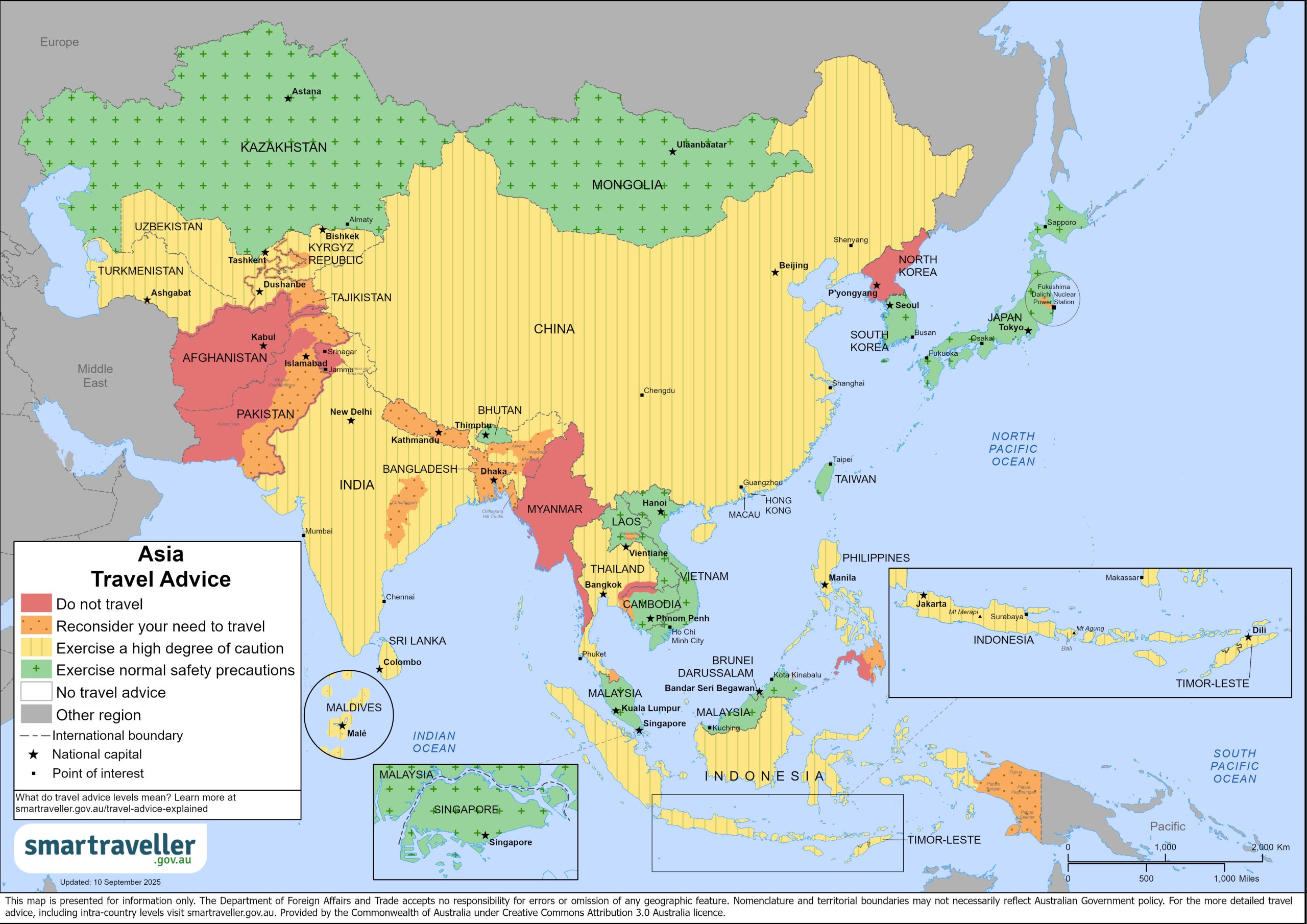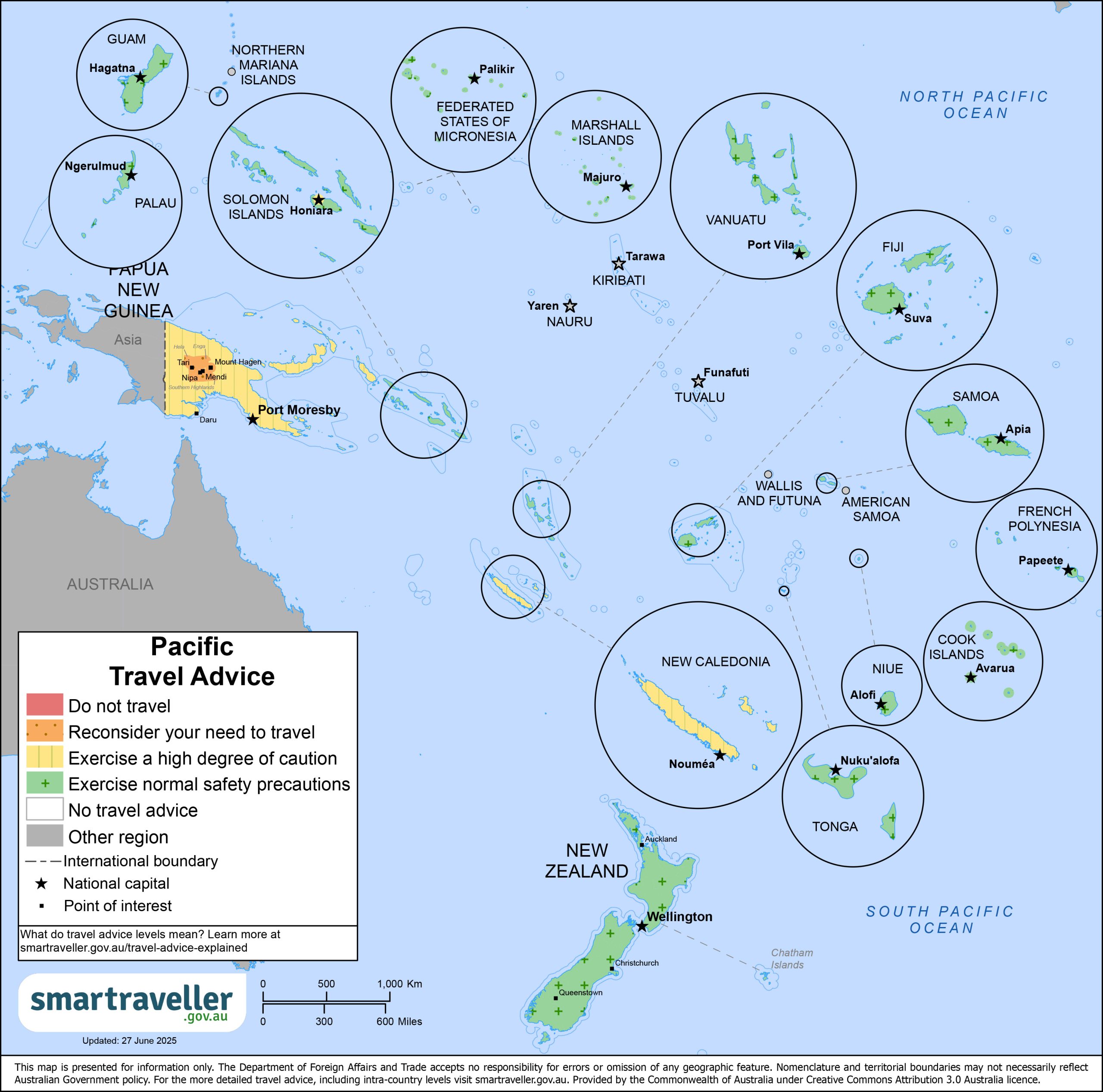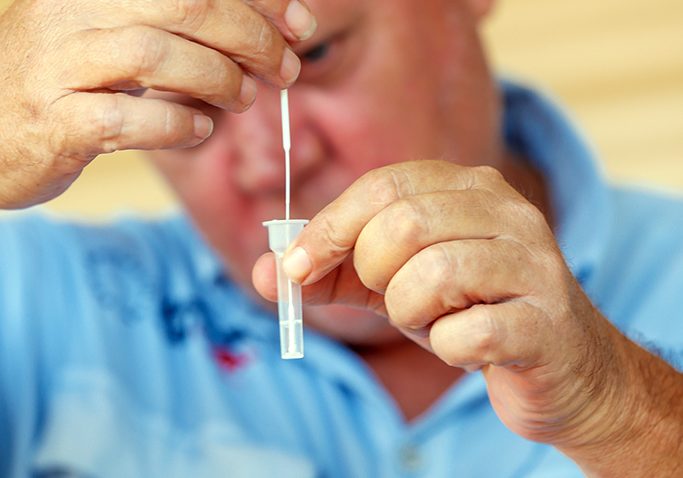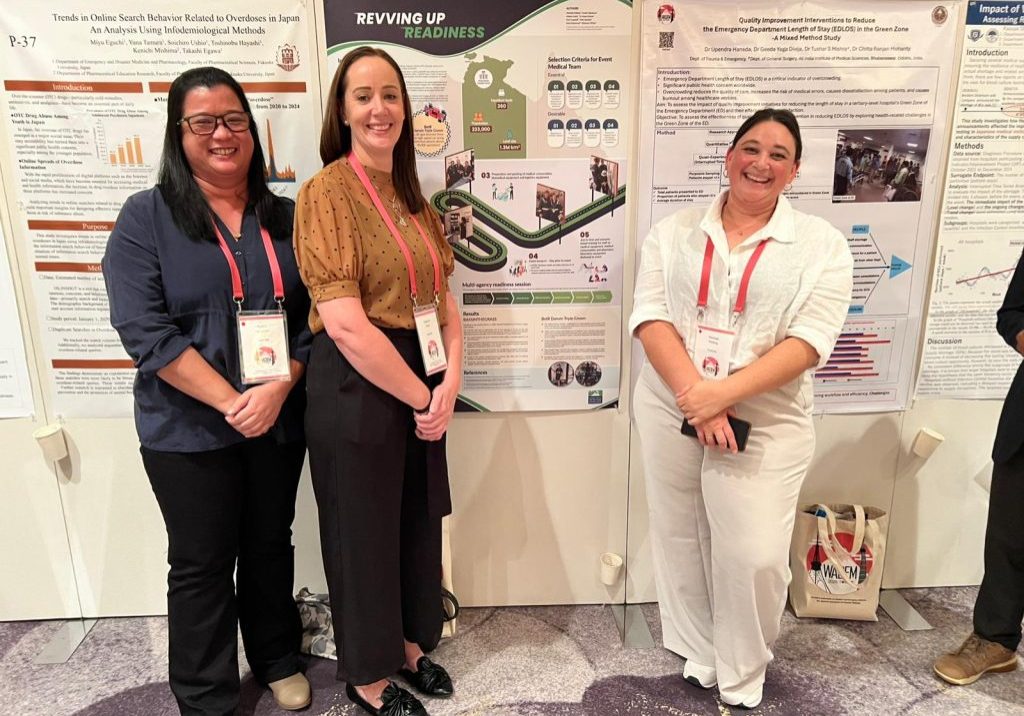Travel smart, travel safe: essential health advice for deployment
24 Sep 2025
Written by Dr Bhavya Balasubramanya
Travel health preparedness means taking proactive steps to protect health and well-being while being away. These include pre-travel medical consultations, recommended vaccinations, preventive medications (chemoprophylaxis), a first aid kit, awareness of destination-specific health risks and comprehensive health insurance.
This preventative approach is a key part of deployment readiness for AUSMAT members, whether nationally or internationally.
Figures 1 and 2: Travel advice for the Asia-Pacific region, showing Australian Government advice levels from ‘exercise normal safety precautions’ (green) to ‘do not travel’ (red). Source: Australian Government Department of Foreign Affairs and Trade – Smartraveller.
Travel health advice
Are you fit to travel as an AUSMAT member?
Prior to deployment, AUSMAT members undergo pre-travel health and fitness checks, including a health survey covering allergies and details regarding malaria prophylaxis.
AUSMAT pre- travel health and fitness checks
AUSMAT members are offered both routine and extended immunisations under the National Immunisation Program and chemoprophylaxis to protect against communicable disease threats prior to deployment.
| Vaccination | Recommended Dosing Information | Evidence | Booster Timing |
|---|---|---|---|
| COVID-19 | Up to date in accordance with most recent ATAGI guidance | Evidence of administration | According to age and risk profile |
| Diphtheria/Tetanus/Pertussis | Single Injection | Evidence of administration | 5 yearly |
| Hepatitis A | Two dose schedule greater than six months apart (monovalent vaccine). If combination with Hepatitis B, follow Hepatitis B advice.2 | Evidence of 2 doses greater than 6 months apart or serological proof of immunity | Lifelong |
| Hepatitis B | Three dose schedule (day 0, 30, 180) plus serological proof of immunity | Serological proof of immunity | Lifelong |
| Influenza | Single Injection | Evidence of Administration | Yearly |
| Measles/ Mumps/ Rubella | Two dose schedule (day 0, 30) | Evidence of administration or serological proof of immunity of all three diseases | Lifelong |
| Varicella | Two dose schedule (day 0, 30) | Evidence of Administration or Serological Proof of Immunity | Lifelong |
Figure 1: Baseline immunisation. Australian Government Department of Health, Disability and Ageing
| Vaccination | Recommended Dosing Information | Evidence | Booster Timing |
|---|---|---|---|
| Cholera | Dukoral® - 2 dose course completed with 1-6 weeks between doses (if greater than 6 weeks, need to repeat) Boosters within 2 years of last dose (if not, repeat 2 dose course) (preferred) Vaxchora® - single dose (immunocompetent only) | Dukoral® Evidence of 2 dose course and single booster dose within 2 years of last dose Vaxchora – Evidence of administration | Dukoral® - 2 Yearly Vaxchora® - 6 months until further notice, coverage unknown beyond 3-6 months |
| Japanese Encephalitis | Imojev ® Single Injection (Immunocompetent) JEspect® 3 dose schedule (day 0, 30, 365) (Immunocompromised) | Evidence of administration | 5 yearly (Imojev®) 2 yearly (JEspect®) |
| Poliomyelitis | Single Injection | Evidence of Administration | 10 Yearly |
| Rabies | 3 dose course (day 0, 7, 365) (Immunocompetent) OR 4 dose course (day 0, 7, 21-28, 365) (Immunocompromised) OR serological proof of immunity (level >0.5IU/mL) | Evidence of Administration | Nil |
| Typhoid | Single Injection OR Oral capsules on alternate days for 3 or 4 doses | Evidence of Administration | 3 Yearly (injection or oral 3 dose) OR 5 Yearly (oral 4 dose) |
Figure 2: Extended immunisations (pre-travel). Australian Government Department of Health, Disability and Ageing
References
- Australian Government Department of Health, Disability and Ageing. 2025. The Australian Immunisation Handbook.
- Health Direct. 2024. Travel health advice.
- Mills DJ, Ramsey L, Furuya-Kanamori, L. 2021. Pre- and Post-Travel Medical Consultations in Tourist Health, Safety and Wellbeing in the New Normal 47-69. https://doi.org/10.1007/978-981-16-5415-2
- United States Centres for Disease Control and Prevention. 2022. Travelers' Health.
- World Health Organization. 2024. International travel and health – Module 1: General health risks and considerations for travellers.














